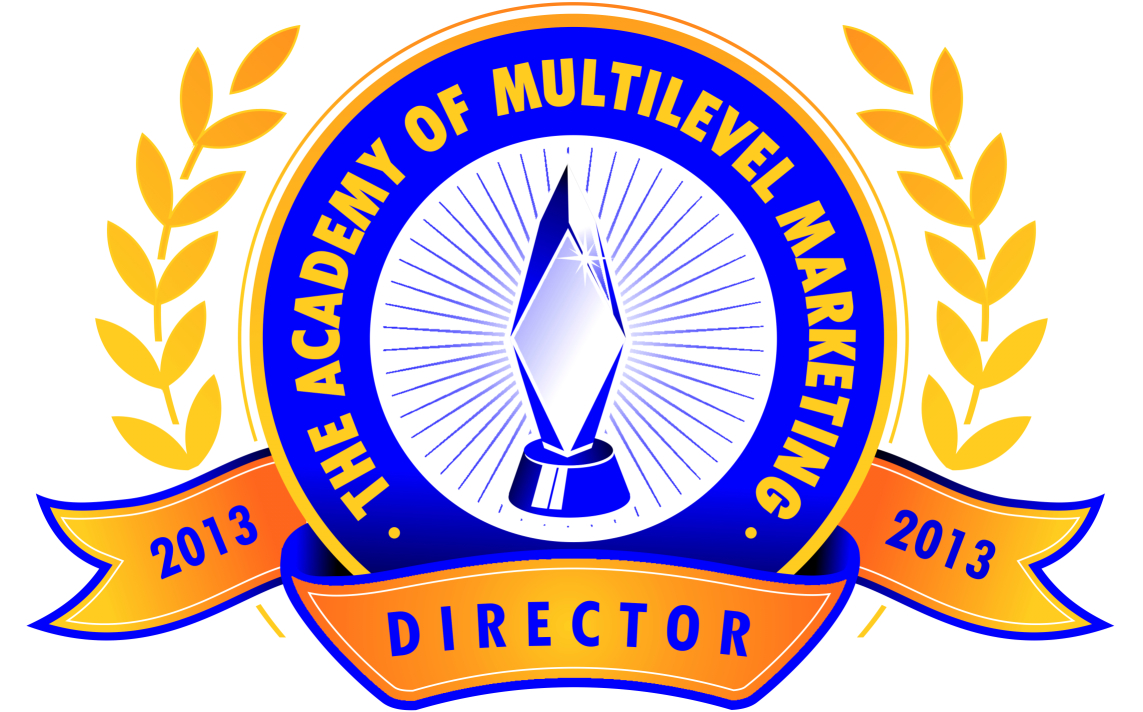By Len Clements © 1997
Want to know how to make your business grow? Then let me tell you a story – three stories.
A man sees an ad offering a wealth building business opportunity. It instructs him to call an 800 number to hear a “powerful, life changing message,” He listens. He is then instructed to pull down some basic information from a fax-on-demand. He does. Within the documents he receives is a distributor application. He signs up. He places the same ad. Others calls. Others access the fax-on-demand. Others join.
A woman receives a cassette tape in the mail titled “Wealth Secrets.” She listens. The secret? Just mail out tapes like this one. There’s a phone number to call on the tape case and a distributor pin number. She calls the number. She orders some cassette tapes and mails them. Others call in to enroll, providing her pin number. Others order cassette tapes.
You hand a friend an “opportunity video.” He watches it. It closes by offering him an opportunity to purchase a $20.00 “Money Making Info Pak.” He does (eliminating the need for you to inventory or mail promotional material). He joins – and buys 100 videos to hand to his friends.
Simple. Duplicatable. Turn key. Phenomenal systems, aren’t they?
Yes – In theory.
No – in reality!
For most folks, network marketing is a career choice. It’s a way out of the rat race. It’s an endeavor that will, hopefully, earn them a comfortable living. One that will pay the mortgage, feed their family, and provide a secure retirement. Most people take choosing how to create a livelihood pretty seriously. They really put some thought (if not four or more years of study) into what they are going to do for a living for the rest of their lives. And, apparently, many people are willing to base this decision on a two page faxed document or a 20 minute cassette tape message.
As upline sponsors, do we really want them to? Really?
I mean, how serious can a person be taking this business who spent 20 minutes to evaluate it and 20 bucks to join it? Think about it. What is the greatest allure to “systems” like these? Isn’t it the simplicity? The alleged effortlessness? The ease? Don’t systems like these basically say “If you think this business might be too hard, here’s a system for you.” It suggests that the “Wave 3 Technologies” will do the work for you. The “system” will build your downline, rather than you. So, who would systems like these attract? Well, most likely those who feel they can’t do it on their own, or don’t want to work very hard!
It’s kind of like improving the GPA on report cards by separating out all the C and D students onto one class, then grading everyone on a curve — as opposed to improving their study skills and helping them learn more.
Or, a better analogy might be that it’s like moving the pitchers mound further away from the batter to make the ball easier to hit, rather than teaching the batter how to be a “heavy hitter.”
Yes, these systems might help the distributor put up some impressive numbers, recruitment wise, but not the numbers that really count — like, amount of dollars on the check! Hey, I have a system that will allow everyone to recruit 100 distributors an hour!I’m serious. All you have to do it walk up to every person you see, gently tap them on the right shoulder and say “I declare you a distributor!” That’s it. Totally duplicatable, requires no expensive sales aids, easy to teach, and will create a genealogy that will stretch from Fresno to Miami – but, of course, no income what-so-ever.
And many of these “systems” we have today are not that far away from this!
Oh sure, most of these systems do provide at least some sales volume and income. But how much and for how long? Are these participants in your opportunity really getting involved to pursue a long term, career changing business opportunity? Do you really think they are joining because they have a great loyalty towards the product? Or, are they buying into the system? Is the method of building the “product” they are really buying? So what do you think these people do if, or when, that product stops performing, or never performs for them? They throw it away! They have no real vested interest, at least emotionally if not financially, in the business. They likely have little or no affinity towards the real products — it was just stuff they had to buy to make the system work, right?
Sometime a few years ago, it’s arguable exactly when, this product focused, merit based industry metamorphosized into a big, giant recruiting contest. Today, almost every “system” is designed to simply slam people into the business. The introduction of all this “Wave-3 Technology” back in the 80’s was suppose to help uscommunicate with people — not communicate for us. We’ve abused this technology. We’ve let it spoil us. We’ve gotten soft and lazy (as a group – there are exceptions, of course).
So, rather than lowering the bar, how about if we all get back to training people to jump higher? Rather than bringing the business down to meet the mediocre, why don’t we bring the mediocre up to the level of excellence that is required to succeed in this business?
One way we might accomplish this is to stop creating systems that are based on what we wish people would do, or what we think theyshould do, and start developing more systems based on what theywill do. This age old concept of “Find a need and fill it and the world will beat a path to your door” is, at least semantically, quite flawed. We, as a society, don’t buy “needs,” we buy wants. We “need” to eat low fat foods — we want bacon double cheeseburgers. We “need” to exercise more – we want to just take a pill that will create the same results. How many of us “need” to see moving pictures projected on a screen, or ingest carbonated sugar water? No one. Yet, the motion picture and soft drink industries are two of the largest on Earth. Why? Because it fulfills a major want, not a need.
Sure, it would be wonderful if all your new recruits could afford to distribute $20 “prequalifying” or “prospecting” packages. It would be great if all those prospects would actually read the book you send them or thoroughly study the product and comp plan material, watch the video, and listen to all the audio cassettes. Life would be grand if, by the time you followed up with them on the phone they were fully informed, objectionless, and ready to dive right in. Or, better yet, if all this could be accomplish without even making the follow up call! It would be MLM Utopia! A land where the whole world wants to hear about your opportunity, is excited about attending your next opportunity meeting, and fully cooperated with the entire recruiting process. Am I exaggerating? Have you listen to any presentation on any “system” that does not describe a perfect world scenario where you ask your friend if they have time to listen to an “exciting, life changing message” and your friend says “Sure, Bob, sounds great. What’s the number?” Or, have you ever heard anyone describe the “referral” prospecting technique where you ask a friend if they “know anyone who would be interested in making an extra 5 to 10 thousand dollars a month” and the friend actually believes you’re not really asking them? All the time, right? – and it’s pure fantasy!
So, you’ve got this great, automatic, turn-key, duplicatable system. Great. Now, where do you get the leads to run through it? Who sells the prospect on why they should listen to the 800-number or cassette tape? Who answers their detailed questions about the compensation plan or products? Who addresses their concerns or objections? Who motivates them once they’re in? Who teaches them, if they do join, how to do all of these things and how to teach it to others?
This is direct sales, which does not lend itself to the cookie cutter approach of franchising (although many “system” proponents will rationalize their approach by siting the success of the franchising industry). Two of the most fundamental, basic aspects of sales, at least in every other direct sales related business, is describingbenefits as opposed to features, and discovering what your prospectwants, and tailoring the “pitch” to match. In other words, don’t tell them what your product does, tell them what they are going to get out of it. How is it going to improve their life? How can you do that without first discovering what aspect of their life needs improving? Very few people teach this benefits focused approach in network marketing, yet it’s an extremely acquirable skill that you wouldn’t last even one day without in any other sales profession!
These “systems” take a blind, shotgun approach. There is absolutely no customization of the “pitch” to match the wants of the prospect. They all just assume it’s money. It’s not. Ever. If all we wanted was money, then why do we quickly exchange it for something else the moment we get it? What they want is the something else! And the “system” has not the slightest clue what that is! Furthermore, the system is one of dozens, selling an MLM program that’s one of hundreds. So your fax-on-demand spits out a page that exclaims, in big bold print, that your comp plan has a “Matching Bonus!” Or, your product contains “HGH precursors!” So what? What does that mean to me, the prospect? How do these things benefit me, and how will they provide me with a marketing advantage if I choose to be a distributor?
These automatic, turnkey systems are like shooting at a target with your eyes closed. Sure, take enough shots and your bound to hit the bullseye a few times, by accident. Yes, opening your eyes and actually aiming at the target will take a little more work. You’ll also hit the bullseye, oh, about ten times more often!
What’s more, federal and state regulatory agencies have us all on a short leash when it comes to describing the benefits of our products, especially those in the nutritional arena. Does the “system” teach you what you can and can’t say? Does it protect you and your company from regulatory action? How could it? There’s only so much you can cover in a five minute recording or a five page fax.
This is a 53 year old business. There’s really nothing new or “revolutionary” about it. Everything’s been tried, and what you see today are just variations of what’s already been done in the past. If we want to discover what works, all we have to do is look back over the last half century and see what has worked, then do that! The stuff that doesn’t work, well, don’t do that! Take a look at the most prolific, wealth generating era of network marketing, from about 1982 to 1992. Most of the obscenely richest distributors today (were talking six digits monthly) originally made their fortunes back then, and they simply maintained it through the rest of the 90’s. Many have lost most or all of it since then. Compare the number of mega-earners from back then to those that have appeared within the last six years. It’s a small fraction. There are a myriad theories to explain this phenomenon, but one certainly must be the advent of the “simple, turn-key, duplicatable system” and the turning away from tried and true methods of building. Things like, oh, talking to people!
Fortunately, there appears to be the very beginnings of a migration back to the, yes, more difficult, but more successful form of network marketing (yes, excellence in network marketing isn’t extinct, just endangered). Even a few of the most die-hard “system” guys are now converting over. Even perhaps the biggest advocate of machine made downlines (you know, the guy with the bag on his head?) I hear is now promoting a more personal, product focused approach (and good for him). And I didn’t just use the term “guys” generically. MLM’s women, in general, still seem to have no problem with making prolonged human contact. It seems to be only the guys who desire an alternate form of communication (as any John Gray book would attest).
Never, in the history of network marketing, has someone built a large, lasting, big income producing downline using any type of simple, automatic system (name one!). Now, make a list of all those who have achieved lasting success and you’re have a list of people who are professional, hard working, excellent network marketers! Or, a few who got lucky and enrolled one or twoprofessional, hard working, excellent network marketers! And, you’ll also have a list of people who, at one time, were NOT professional, excellent network marketers! Professionalism and excellence IS duplicatable! Although it might require some, God forbid, hard work.
But as the last 53 years of MLM, and the last six million years of human existence, has taught us…
Work works!










